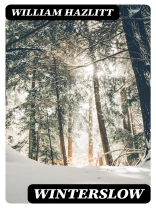In ‘Winterslow, ‘ William Hazlitt presents a meditative exploration of rural life and the intricacies of human emotion, meticulously described through his signature essayistic style that melds personal reflection with vivid observation. Set against the backdrop of the English countryside, the narrative manifests a deep affinity for nature and nostalgia, capturing the transformative power of the seasons as they parallel the cycles of human experience. Hazlitt’s prose is marked by its lyrical quality and philosophical depth, inviting readers to contemplate the interplay between environment, time, and identity, firmly situating the work within the Romantic literary context. William Hazlitt (1778-1830) was a prominent essayist and critic, often associated with the Romantic movement. His life was steeped in the rich tapestry of philosophy and politics, drawing influences from thinkers such as Wordsworth and Coleridge. Hazlitt’s personal encounters with the artistic and political landscapes of his time, along with his seasoned understanding of human character, inform the reflective and observant tone of ‘Winterslow, ‘ allowing him to eloquently articulate the complexities of rural existence and emotional authenticity. ‘Winterslow’ is a compelling read for those interested in the subtleties of nature writing and the exploration of the human psyche. Hazlitt’s unique blend of introspection and keen observation offers readers a profound appreciation of life’s ephemeral moments. This book is a treasure for lovers of literature who seek to engage more deeply with the world around them and to reflect on their own experiences.
Об авторе
William Hazlitt (1778–1830) stands as a distinguished figure in the annals of English literature, esteemed for his trenchant criticism, essays, and lectures. Born on April 10, 1778, in Maidstone, Kent, he was the son of a Unitarian minister, which brought him into the orbit of progressive intellectual and political thought early in his life. Hazlitt pursued his own education in the fine arts and philosophy while engaging with the works of seminal thinkers such as Rousseau and Locke. His formidable intellect would later translate into a prolific career in writing and journalism.
Hazlitt’s style is noted for its clear, incisive prose and its potent mix of literary, social, and philosophical critique. One of his later works, ‘Winterslow: Essays and Characters Written There’ (1820), a collection centered around his thoughts and musings whilst residing in the village of Winterslow, encapsulates his ability to combine personal reflection with broader social commentary. Hazlitt approached a wide array of topics with a critical eye and a personal touch, earning him a place among the era’s prominent essayists such as Charles Lamb and Thomas de Quincey. Despite facing financial difficulties and a certain degree of contemporary criticism, Hazlitt’s legacy endures, and he is celebrated today for his contributions to the Romantic era’s thought and literature.












